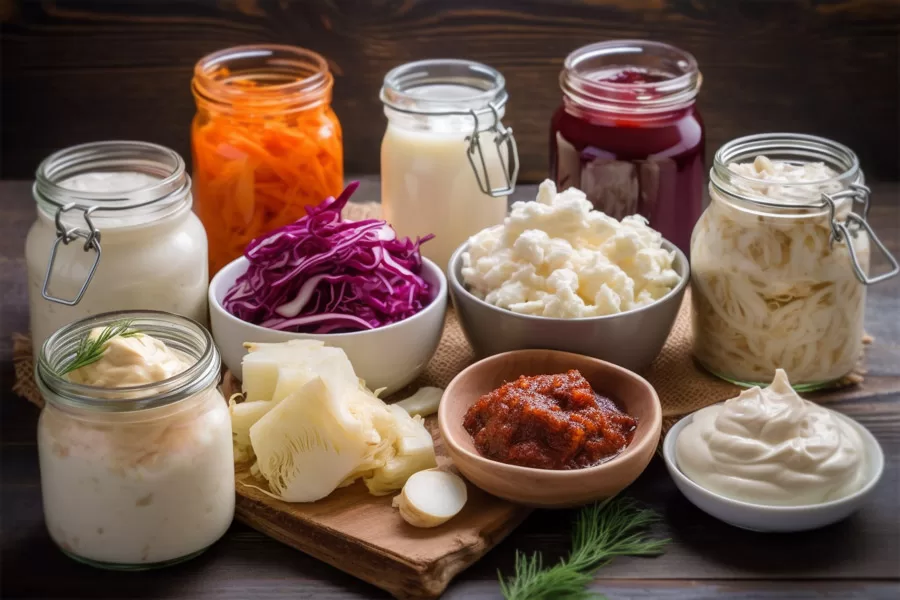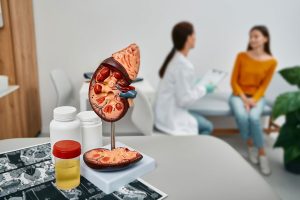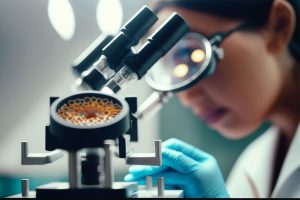The role of dietary choices in ensuring optimal health can’t be understated. Notably, certain foods are linked to bladder and prostate health. As such, a mindful diet can help reduce the risk of issues related to these organs.
The bladder functions as a reservoir for urine, and the prostate plays a role in semen production, both of which are integral to the male urinary system. Problems with these organs can result in discomfort, urinary tract issues, and serious health concerns such as prostate or bladder cancer.
It is thus crucial to understand the dietary measures we can adopt to enhance bladder and prostate health. In this article, we delve into which foods to consume, those to avoid, and the role of hydration and supplements.
Importance of Diet for Bladder and Prostate Health
Bladder and prostate health can be significantly affected by our nutritional intake. Adherence to a balanced diet may prevent urinary infections, bladder issues, and prostate disorders. Moreover, certain foods can help lower the risk of prostate cancer.
Foods to Include in Your Diet
Vegetables and Fruits
Fruits and vegetables are powerhouses of essential vitamins, dietary fiber, and minerals, and are essential for bladder and prostate health. Especially beneficial are berries, apples, bananas, bell peppers, and cruciferous vegetables.
| Berries | Apples | Bananas | Bell Peppers | |
|---|---|---|---|---|
| Vitamins | Vitamin C, K | Vitamin C, K, B6 | Vitamin C, B6 | Vitamin C, K, E, B6, A |
| Antioxidants | High | Medium | Low | High |
| Dietary Fiber | High | High | Medium | Medium |
| Caloric Value | Low | Medium | High | Low |
Omega-3 Fatty Acids
Inflammation can be reduced by consuming foods rich in omega-3 fatty acids. These include fatty fish, flaxseeds, and walnuts, which help to promote prostate health.
Probiotic Foods
Probiotic foods like yogurt, kefir, and fermented vegetables contribute to a balanced gut microbiome, indirectly supporting urinary health.
Foods Rich in Selenium and Zinc
Essential minerals for prostate health, selenium, and zinc, can be found in foods such as Brazil nuts, sunflower seeds, and shellfish.
Foods to Limit or Avoid
Processed Foods
Avoid processed foods high in sodium and unhealthy fats to prevent inflammation and potential worsening of urinary issues.
Red Meat
Reducing red and processed meat consumption could decrease the risk of prostate problems. Healthier options include lean proteins such as poultry or fish.
Alcohol and Caffeine
Consumption of alcohol and caffeine should be moderated as these substances can irritate the bladder, leading to increased frequency of urination.
| Alcohol | Caffeine | |
|---|---|---|
| Stimulant or Depressant | Depressant | Stimulant |
| Effect on Central Nervous System | Slows down brain activity | Speeds up brain activity |
| Common Sources | Wine, beer, spirits | Coffee, tea, energy drinks |
| Long-term Health Risks | Liver disease, heart disease, addiction | Dependence, increased heart rate, insomnia |
Vitamins and Supplements
Vitamin D and Vitamin E
Vitamins D and E are vital for prostate health and can be sourced from foods such as fatty fish, nuts, seeds, and leafy greens, or as supplements under medical supervision.
Zinc and Selenium Supplements
Supplementation of zinc and selenium can ensure optimal levels are maintained for prostate function, particularly for individuals with dietary restrictions.
The Role of Hydration
Adequate hydration through drinking ample water can dilute urine, reducing the risk of urinary tract infections and kidney stones. However, balancing hydration with frequent urination is crucial, especially for those with urinary issues.
Pros and Cons of Diet Modification
- Pros: Altering diet can vastly improve bladder and prostate health and decrease the risk of associated problems.
- Cons: Implementing dietary changes can be challenging and may require substantial lifestyle adjustments.
Conclusion
Healthful dietary choices significantly contribute to the wellbeing of your bladder and prostate. By choosing the right foods and avoiding harmful ones, you can maintain a nutrient-rich diet for optimal urinary health.
Frequently Asked Questions
1. Is a balanced diet enough to prevent bladder and prostate issues?
Although a crucial factor, diet should be complemented by regular exercise, adequate hydration, and routine health check-ups.
2. Are dietary modifications effective for existing bladder or prostate issues?
Changing one’s diet can assist in managing symptoms and potentially slow disease progression. However, medical advice should always be sought for personalized recommendations.
3. Can supplements be used in place of a balanced diet?
While supplements can help meet nutritional requirements, they are not a substitute for a varied and balanced diet.







